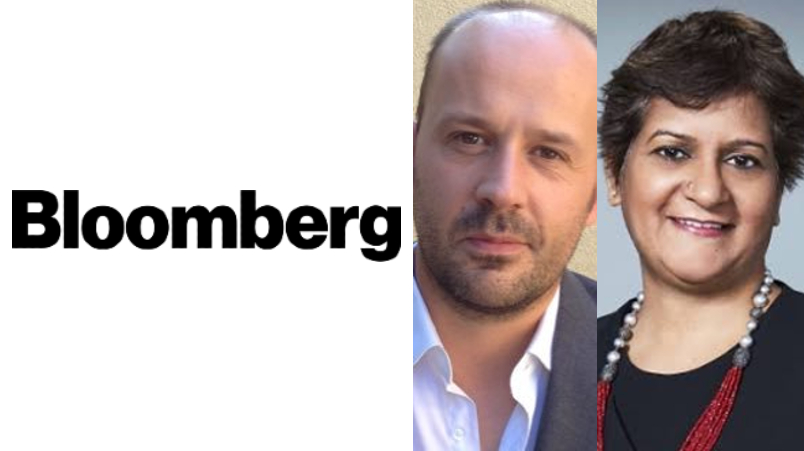Australia's highest earners say news media 'too polarised', want more facts, less opinion: Bloomberg

"The high net worth behaviour of Australia is a lot more considered and structured in how they’re looking for," Bloomberg's David Hearn (Left) says. Right: Managing Director of APAC Media Sales & Marketing Sunita Rajan
When Bloomberg asked 500 people – most with salaries upwards of $160,000 – what they thought about news media, most said the landscape had become too polarised, the lines between fact and entertainment had blurred too much, and they felt there needed to be more fact-based journalism.
What you need to know:
- Bloomberg has conducted a survey interviewing 500 high-earning white collar Australians about their attitudes to news.
- 85 per cent read across multiple news sources before forming a view.
- Bloomberg’s research involved in-depth interviews with several media buyers, who indicated they predominantly buy local news media in campaigns. Bloomberg says this doesn’t reflect high-earning audience consumption behaviour, which crosses borders: “News doesn’t have any borders.”
Australia’s high earners feel news media is increasingly polarised and read multiple domestic and international outlets before making decisions – but media planners are still predominantly buying locally - that's a key takeout from a research project by Pollinate for Bloomberg.
The recent qualitative and quantitative survey from Bloomberg asked 500 white collar professionals about their attitudes to media in Australia. Two thirds of those surveyed (67 per cent) had income of more than $200,000 and 47 per cent of them were ‘Senior Management’, including CEOs, CFOs and Directors.
The survey, conducted by strategic agency Pollinate, found:
- 78 per cent of respondents agreed the news landscape has become too polarised.
- 89 per cent felt there needs to be more balanced, fact-based journalism.
- 90 per cent said they felt the lines between fact-based reporting, opinion and entertainment were blurring.
- 85 per cent said they read across multiple news sources before forming a balanced viewpoint.
The survey involved nine 45-minute interviews, including with several media buyers.
David Hearn, Head of Strategy at Bloomberg, said the qualitative interviews found Australian media buyers rarely consider global outlets – despite high earners saying they often read international news sites.
“Consumption doesn’t create a line between them, whereas there appears to be a bit of a line in terms of how we’re planning,” Hearn said.
“It seeps into everyone’s approach. Australia is inherently a domestic-led market. But what we’ve seen from this research is that the high net worth behaviour of Australia is a lot more considered and structured in how they’re looking for and what they’re getting in their news.”
There is an “artificial line” between domestic and international news outlets that doesn’t reflect consumption behaviour. Bloomberg says it has some 50 staff based around Australia and is a “domestically-driven” news service that delivers news internationally.
“The audiences have told us they’re looking for a global perspective on stories, and they’re looking for information that would help them obviously make decisions but also help them in their day-to-day work,” Sunita Rajan, Managing Director of APAC Media Sales and Marketing, said. “Every story today is a business story.”


